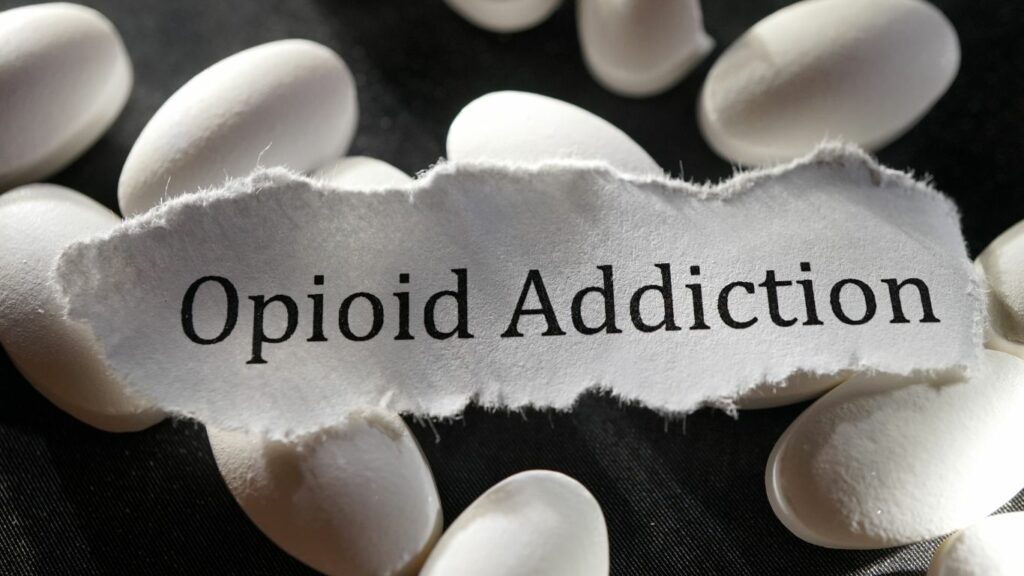How Long Do Opioids Stay in Your System?

Struggling with opioid addiction can be one of the toughest things a person can experience. For decades, the United States has been experiencing an opioid epidemic, and it’s not surprising if one of your loved ones has been troubled with opioid abuse. Synthetic opioids, along with other illicit substances in the category like heroin, can be very addictive. There are many addiction and abuse treatment programs available, and at DayBreak we are ready to help you address any issues with substance abuse. If you or one of your loved ones is struggling with addictions or drug abuse of any kind, and you have questions about rehab, give us a call today.
What are Opioids?
Drugs in the opiate and opioid category, all of which have contributed to the opioid epidemic, include both illicit drugs like heroin and opium, as well as prescription opioids that are most often ordered by medical professionals for pain management. Some common opioids include:
- Codeine
- Fentanyl
- Hydrocodone
- Oxycodone
- Oxymorphone
- Morphine
It’s important to understand that even when this type of opioid is taken as prescribed, an individual can still develop an addiction to synthetic opioids. Some of the brand names for common opioids that are prescribed by medical professionals are:
- OxyContin
- Percocet
- Palladone
- Vicodin
This type of opioid is usually taken in pill form, but is also offered as lozenges and lollipops.
Call Daybreak Treatment Solutions today at (844) 695-0083 for help in overcoming your addiction.
Opioid Withdrawal Timeline
If you are struggling with opioid or opiate addiction and make the important decision to stop the cycle of drug abuse, you will most likely experience withdrawal symptoms. What addiction and abuse withdrawal symptoms you experience during opioid withdrawal and how severe they will be is based on a few factors that include:
- The type of drug you’ve been using.
- How long you’ve been using prescription opioids or opiates.
- Your typical dose of an opiate or opioid..
- Factors affecting your general state of mental and physical health, including how long you’ve struggled with opioid addiction
Withdrawal symptoms from heroin addiction and some common opioids that are short-acting like oxycodone, hydrocodone, and fentanyl can typically be seen within the first 8-12 hours after last use, then peak within 1-3 days, and continue up to 7 days. Here’s a list of possible opioid or opiate addiction withdrawal symptoms:
- Restlessness and irritability
- Depressed mood
- Insomnia
- Aching muscles/bones
- Teary eyes
- Runny nose
- Yawning
- Dilated pupils
- Chills
- Goosebumps
- Fever
- Sweating
- Loss of appetite
- Nausea and vomiting
- Diarrhea
- Increased blood pressure and heart rate
- Strong cravings to use opioids
What Happens to Your Body When You Take Opioids?
When you take synthetic opioids or other substances in the category, use triggers endorphins in your brain, which affects how you feel pain and boosts the feelings of pleasure. People begin a cycle of substance abuse because they like the way they feel when they take an opiate or opioid and want to feel that way again.
Signs of Opioids Abuse
If you think one of your loved ones is struggling with opiate or opioid abuse, there are signs you can look out for when they are using. Addiction affects not only the person who has an opiate or opioid abuse problem, but all of those around them, at home, school, work, and everywhere else in their life. Using opioids can cause side effects such as drowsiness, mental fog, nausea, and constipation that may be almost immediately apparent when someone is using.
How to Help Someone with Opioid Addiction
Opioid and opiate addiction treatment is readily available in a lot of areas, so if one of your loved ones needs help, call us today at (844) 695-0083. Whether it’s heroin detox, treatment for prescription drug addiction, inpatient rehab including behavioral therapy, dual diagnosis treatment, or our outpatient treatment program, if you have questions about rehab, we have answers. The bottom line is a great way to help one of your loved ones with an opioid or opiate addiction is to introduce them to treatment programs available to them.
